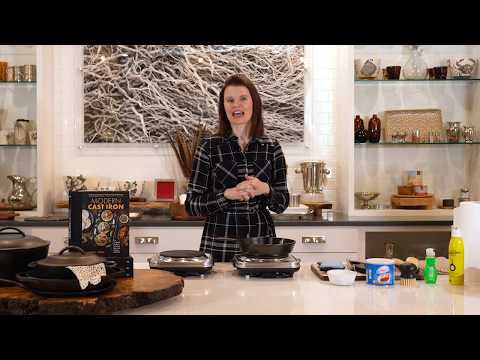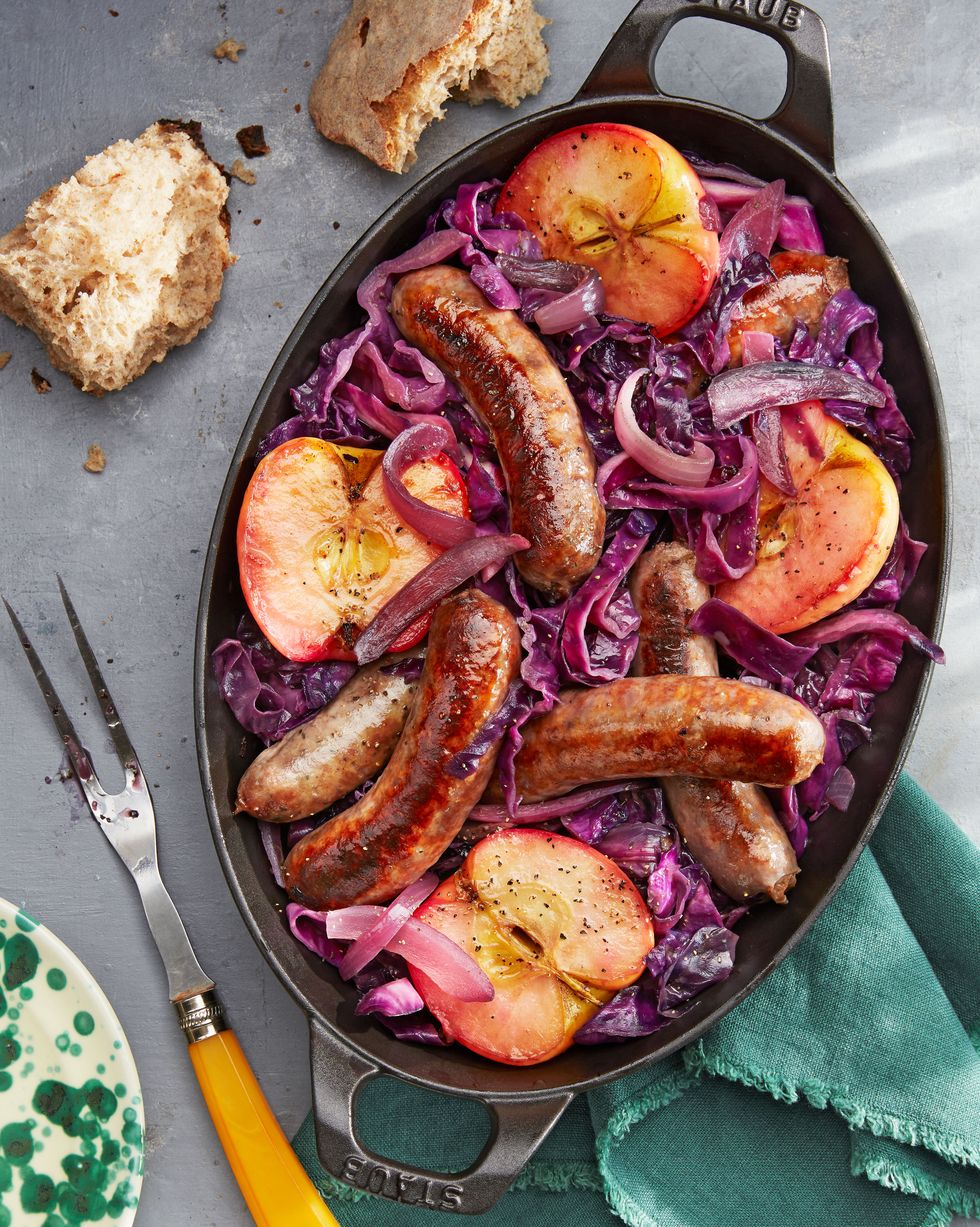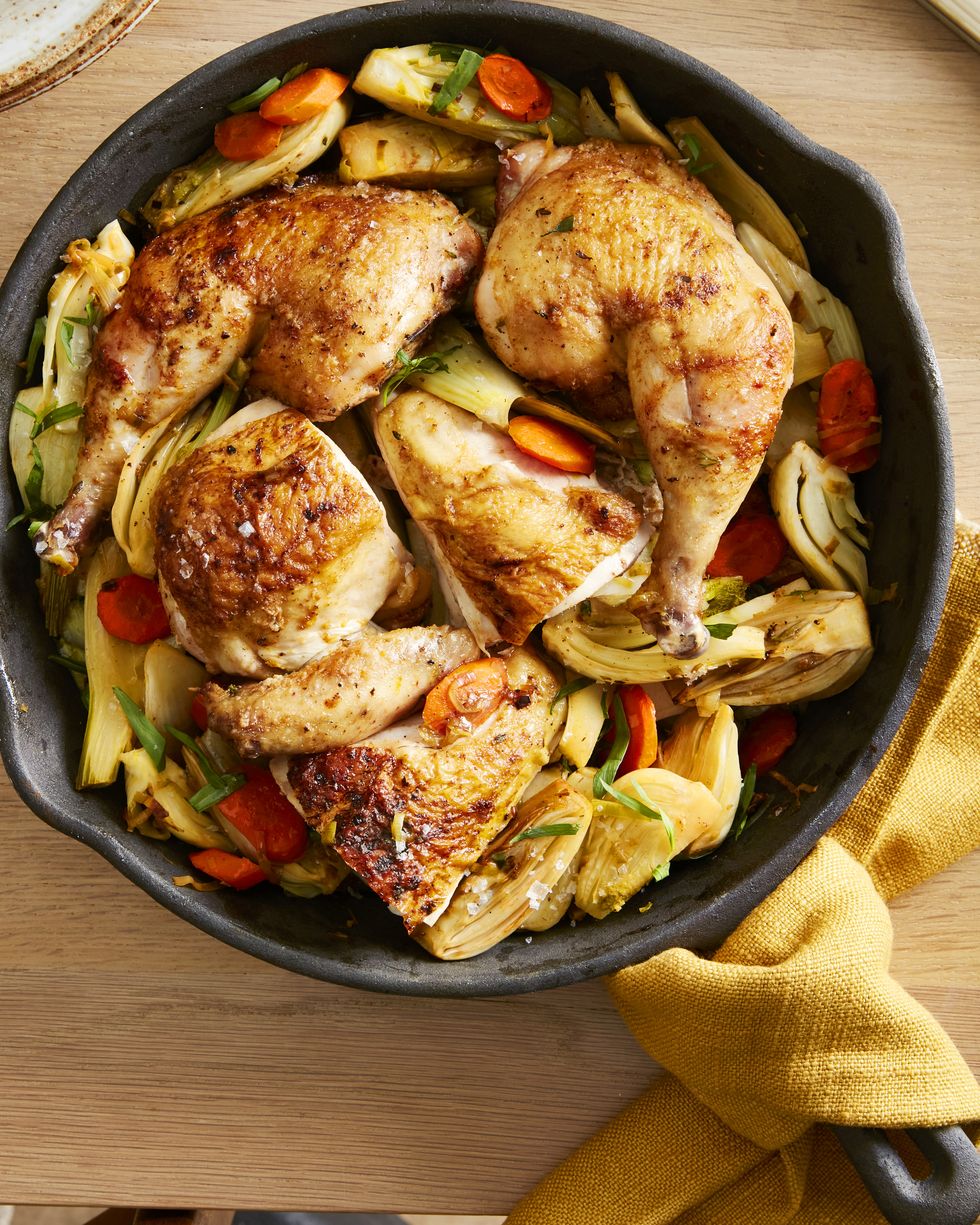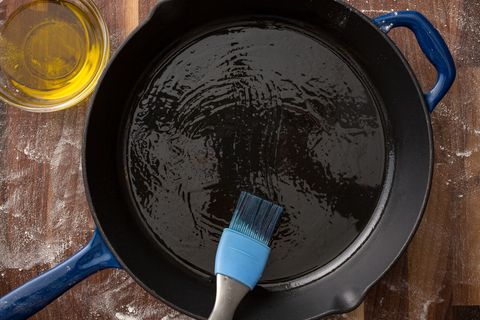How to Clean a Cast Iron Skillet
There’s something about cast-iron pans that we just love. Whether we’re shopping online, drumming up dinner ideas, or out traveling, it feels like those iconic black skillets are never far from our thoughts.
It’s easy to understand why: Cast-iron skillets aren’t just nearly indestructible cookware. They’re heirlooms, passed down from generation to generation. They’re keepsakes and decorative statements. (What says “serious but unfussy” better than cast iron skillets hanging in the kitchen?)
Most importantly, for dedicated cooks, they’re incredibly useful tools. They go effortlessly from the stove to the oven, can sear meat like nothing else, and are one of the rare household objects that gets better the more you use it.
But when it comes to caring for them, there are a lot of misconceptions. While you may not want to just toss them in the dishwasher (we’ll explain why, below), they’re more sturdy and durable than some advice would have you think.
To help separate the fact from the fiction, we spoke to Ashley L. Jones, author of Modern Cast Iron and Skilletheads and founder of the popular website Big Sister Knows. A dedicated collector, cook, and cast-iron restorer, Ashley has dedicated years to learning all there is to know about the history and science of cast iron cooking. She walked us through some basic dos and don’ts when it comes to this maintaining this classic cookware.
This content is imported from youTube. You may be able to find the same content in another format, or you may be able to find more information, at their web site.
Do you even need to clean your cast iron?
“When it comes to your daily pan,” says Ashley, “unless it’s got caked-on food, you may not need to clean it at all.
For example, I have an egg pan that we make hash browns and fried eggs and sausage and bacon and those types of things in every morning. And we really don’t clean it. (By clean, I mean adding soap and scrubbing.) For that kind of usage, you can just wipe out the crumbs and some extra oil and and you’re done.
“This is because, when you use a pan like that, the main thing you’re adding is fats or oils. Every time you cook with fats and oils, you’re contributing to the seasoning—that dark layer of heat-hardened oil that gives cast iron its natural nonstick ability.”
What is the best way to clean a cast iron skillet after use?
This non-cleaning, Ashly warns, has limits. “You only want to do this with a pan that you’re truly using every day,” she notes. “Otherwise those oils, just left sitting on the pan, will become rancid.”
When that happens, or if you’re making something like scrambled eggs or Fettuccini Alfredo, then you’ll need to clean it, and Ashley recommends a basic hand wash with soap and hot water. (If you do it shortly after cooking, you can avoid having to scrub at dried-on food.)
“I like to use warm water and scrub with a soft natural bristle brush,” notes Ashley. “But any kind of brush or even a silicon pan scraper is fine. You definitely don’t want to use abrasive steel wool pads or anything too rough.”
Should you use soap on a cast-iron pan?
When it comes to mild dish soaps and detergents, you can relax. The advice against it comes from a time when it was a much bigger risk.
“Back in the day, our grandmas had lye-based soap, and a little of that would take all the seasoning off. We don’t really have that today, or at least we don’t use it in the kitchen,” says Ashley. “Liquid detergents you find now should all be fine.”
To keep your cast-iron skillet in tip-top shape, it’s not what you clean it with, it’s what you do directly after, which is to dry it on the stove, and then lightly season it.
Never let your cast-iron pan sit wet.
“After you wash a pan, even if you dry it with towels, it will still be just a little wet. And that water—any water—left to sit on a pan will eventually break through the seasoning and cause it to rust,” says Ashley.
“So, to get it bone dry, you need to heat it. Put it on low heat for just a minute or two. That will dry that pan out much more than you could ever do with a towel.”
“Once it gets to that point,” says Ashley, “give it a light seasoning. It takes two extra minutes and it will help the seasoning keep from wearing away.”
How to lightly season a cast-iron pan.
“When the pan is hot and dry, over low heat,” says Ashley, “add a teaspoon of oil. Then take a paper towel with a pair of tongs and wipe the towel around until all of that oil is evenly dispersed over the inside of the pan.
“You don’t want to leave oil in the pan. It’ll get gunky and sticky. So wipe away any excess oil and then just let the pan cool.” This should keep your pan both beautiful and functional for generations.
What should you NEVER use to clean a cast iron skillet?
While most detergents and even other cleaners will not harm a pan (“I once interviewed a chemist who said that you can actually rinse a pan with isopropyl alcohol,” says Ashley), you should absolutely avoid lye-based soaps, which will strip the seasoning right off. (If that happens, you can always re-season your pan, though it may take some time to build the layers of seasoning back up.)
You also want to avoid letting a cast-iron pan soak in water. “The one time I actually completely removed the seasoning from a pan overnight,” says Ashley, “was when I made an apple pie.
“I baked it, and I stuck it in the fridge. My pie’s crust turned completely black. And the pan inside turned silver. Leaving anything wet in your pan for a while, especially overnight, will damage the seasoning.”
What is the best oil to season cast iron cookware?
“The beauty of cast iron is that you can cook with any vegetable oil or fat, and it’s probably going to work,” says Ashley. “You just have to watch your temperature, so that the oil doesn’t smoke.” And whatever cooking oils you use, they are also naturally adding to the seasoning.
When it comes to adding oil specifically to season a pan, Ashley says, most cooking oils will work just fine. Though there are two oils that she specifically recommends against: animal fats and flaxseed oil.
“For a long time, many people recommended flaxseed oil to season pans,” says Ashley, “because it gets so hard. But the problem is that when it gets that hard, it can flake off. So if you do use flaxseed, you want to combine it with other oils to make it more malleable.
“The other thing to avoid is animal fats. A lot of our grandparents used lard, but they typically only had a few pieces of cookware and they used them daily. If you season with lard and let it sit, the seasoning will become rancid,” she says.
Does vinegar or acid destroy cast iron?
“If your pan is properly seasoned, and you’re simply making a tomato sauce for spaghetti, or adding a little vinegar to a dish that cooks for twenty, thirty minutes, then it’s not a problem,” says Ashley. “But if you’re making chili, or tomato soup, or something that needs to sit for several hours, then I would recommend an enameled pot.”
And pure vinegar? That’s definitely a danger.
“Some people will use a vinegar bath to completely remove the seasoning from a pan they plan to restore,” says Ashley. “It will take both the seasoning and rust off.” But if the pan is left in the solution too long? “It will cause pitting,” she says.

Chris is the Senior Food & Garden Editor at Country Living, where he covers all things edible or growable. He has two kids and a big dog, and lives in Birmingham, AL.




